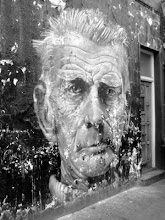A little news to impart and a few snippets to report but lest I have given you the impression that my entire reading time is spent in the imagined worlds of fine fiction or in the worthy immersion of brain improving non-fiction, I thought I’d open with a departure from the norm.
I’ve been captivated of late by the rise in piracy off the coast of the horn of Africa. Was I alone in being amazed by the news images some months ago of a ransom payment, where a briefcase full of cash was placed in a waterproof container and dropped by parachute onto the deck of a hijacked vessel? Was this week’s story, still unravelling daily, of the first American vessel to be hijacked in 200 years as it took food aid to Africa’s East coast from Djibouti, of the crew taking control back from the pirate crew but the Captain himself being taken off the vessel as security, as American destroyers steam to the scene, not the most compelling news story of recent months? I thought so and wanting to dig a little further found my way onto the International Chamber of Commerce’s website. Not only is there a map of recent piratical events on it but also a rather fascinating document entitled “Best Management Practices to Deter Piracy in the Gulf of Aden and off the Coast of Somalia”. It makes for extraordinary reading, giving vessel masters a “how to” guide to maximise prevention of attack and a step-by-step manual on what to do in the event of being boarded. Its calm professional language belies the sense of fear and panic that must attend such an event and serves as a reminder to land-lubbers of the self-reliance and grit that modern sailors bring to their work, on which we are reliant for so many of the foodstuffs and goods that fill our shelves.
On other, less dangerous, fronts, I spent last week at the Sunday Times Oxford Literary Festival, waking each morning to the glorious honeyed architecture of Christ Church College. It is a beautiful place to spend time, its old thick walls as calming and inspirational to a creative mind as they are resistant to a wi-fi signal.
There were more high spots than a few words here can cover but which include breakfasting each morning with Joanne Harris in the Great Hall – formally the seat of Parliament, now immortalised in the Harry Potter films, interviewing John Calder who published William Burroughs, Hubert Selby Jnr and Henry Miller and in defending the right to do so was the first to hire a young John Mortimer whose successful defence made him the darling of those who fought for freedoms of speech and publishing and led to him later defending the famous Oz trial. John M was meant to be interviewing John C himself but his death last Christmas Eve created a vacancy I was honoured to fill. Indeed I believe I was one of – if not the – last people to interview John Mortimer, which gave me a sense of pride and the event a certain circularity. Calder published so much of Samuel Beckett’s work and another connection was made when Joanne Harris told me one morning of a walk in Montparnasse cemetery when she and her husband chanced upon a funeral in progress. They waited until the few mourners had moved away before approaching the grave only to find that it was the interment of Beckett that they had just witnessed.
Interviewing Dame Ann Leslie, doyen of the Daily Mail for over forty years, was all that one might expect from one who has witnessed first hand the great world events of the latter part of the twentieth century. Meeting Willie Harcourt Cooze, he of the chocolate factory TV programme and the brother of a beautiful girl I was entranced by twenty years ago, was an unexpected pleasure as was interviewing Rory McGrath, a more gentle and evolved man than his television persona might lead you to believe.
Much fun and many good conversations were had at the various lunches and dinners with Andrew Holgate, literary editor of the Sunday Times and perhaps the hardest working sponsor of any literary festival I’m aware of and Sally Dunsmore, the festival director who is possessed of a preternatural calm and grace that belies her sleeplessness and work rate. It is an excellent festival that if you haven’t yet attended should be added to next year’s diary.
During the course of the week The Lady magazine published its relaunch issue and in doing so shed its Miss Havisham image to reveal a rather fetching Estella. It also announced a new literary editor who over the course of the next few weeks and months will add to the improved editorial with book recommendations, a book club and various other literary events and opinions. Watch this space.
One final joy from Oxford was sharing a stage with two rather extraordinary men, David and James Livingston, who in April 2003 both competed in the Oxford-Cambridge University Boat Race. Not the first time that siblings had done so of course, but the first time in more than a century that they had done so on opposing teams. It was, like the John Calder event, not a full house, but the intimacy of a smaller crowd made for an extraordinary event, both the brothers giving frank and often painful accounts of the bittersweet rivalry of the race and the cost to their relationship. Their father, sitting proudly in the audience, responded generously to questions from me and gave the hour a piquancy that is rarely achieved at a live event.
Whilst not the open ocean, the Thames has been the location for much bravery, heartache and human drama and so I’ll close with thoughts for those in peril on the sea.
Yours truly,
LibraDoodle.




No comments:
Post a Comment